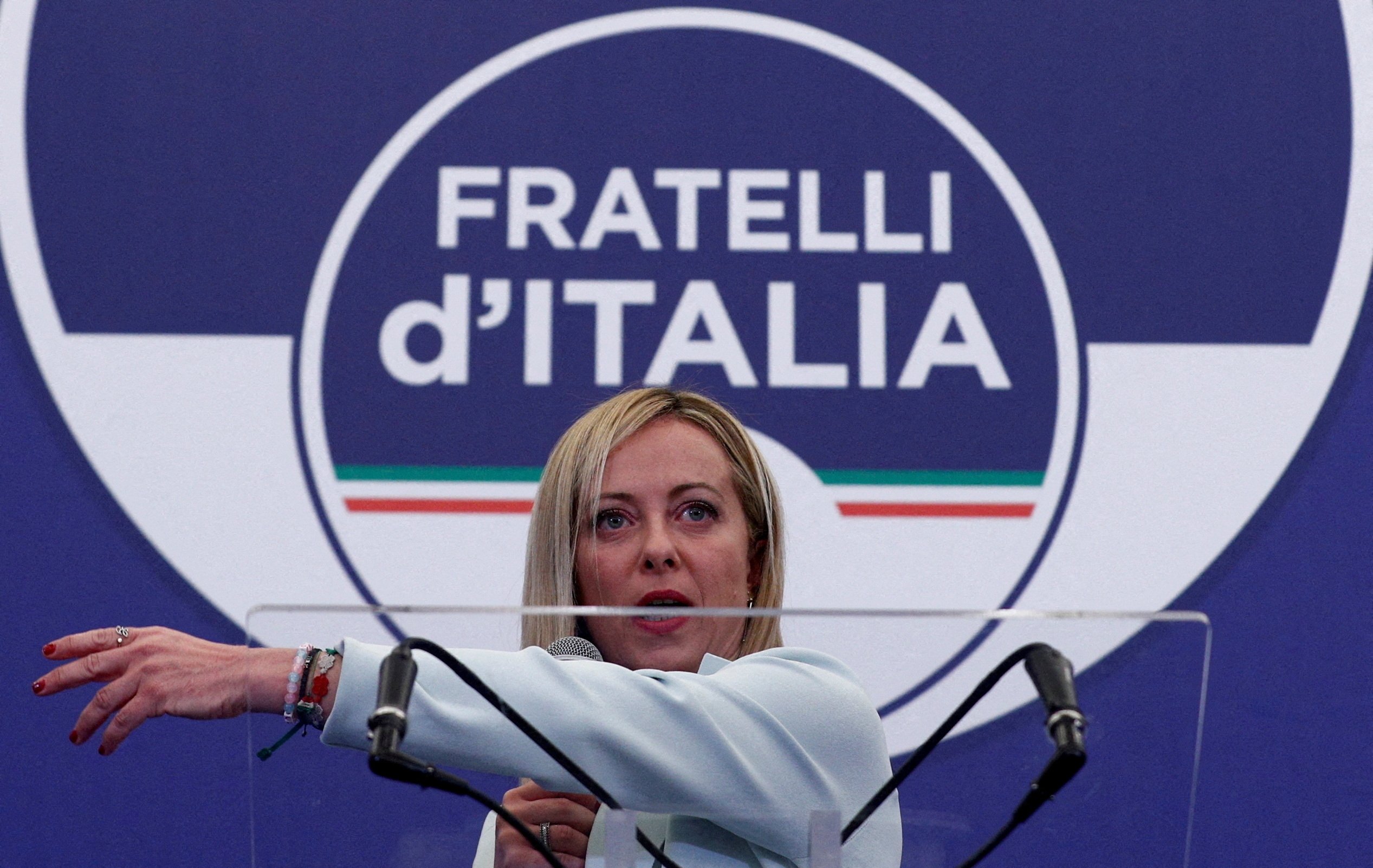© Turkuvaz Haberleşme ve Yayıncılık 2026
Italy's economy probably shrank in the third quarter and will keep contracting until mid-2023, according to Treasury forecasts that will make grim reading for Giorgia Meloni, the rightist leader expected to be named prime minister this month.
The forecasts indicate the eurozone's third-largest economy, hit by soaring energy costs and record high inflation, is already in the early stages of a recession, widely defined as two consecutive quarters of declining gross domestic product.
Growth was firmer than expected in the first half of the year and gross domestic product (GDP) jumped 1.1% in the second quarter from the previous three months, but the Treasury's Economic and Financial Document (DEF) published on Friday said a downturn has already begun.
The slump is already emerging in monthly data. Some 74,000 jobs were lost in August, the second consecutive decline, according to the statistics bureau ISTAT, which also recorded a sharp drop in consumer and business moral in September.
On Monday, Italy's closely-watched S&P Global Purchasing Managers' Index (PMI) showed the manufacturing sector contracted for a third straight month in September, albeit by somewhat less than expected.
Meloni, who led a right-wing alliance to victory in Italy's Sept. 25 election, is negotiating with her allies to put together a cabinet, with the role of economy minister widely seen as the most important and difficult position to fill.

Names repeatedly cited in Italian media include European Central Bank (ECB) board member Fabio Panetta and Morgan Stanley executive Domenico Siniscalco, who already held the position 18 years ago.
However, Panetta has made clear he is not interested in the job and Siniscalco has not been contacted by Meloni, political sources told Reuters.
One of the sources said Meloni was not keen on Siniscalco.
The prime-minister-in-waiting is not expected to take office for at least three weeks, giving her time to find a suitable candidate.
The Treasury estimated "slightly negative" GDP readings in both the third and fourth quarters, weighed down by contractions in the industrial sector.
"A further decline in GDP is forecast for the first quarter (of next year) followed by a pickup from the second quarter," the DEF document said.
It forecast the recovery would be led by a rise in international demand, a fall in gas prices and an increasing contribution to GDP from European Union pandemic recovery funds and reforms Italy implements in return for receiving them.
However, the DEF showed that Italy will spend around 13 billion euros ($12.62 billion) less this year of the EU recovery funds than it previously targeted, underscoring the country's problems in implementing investment programs.
The DEF, whose main numbers were released earlier last week, slashed next year's full-year GDP growth forecast to 0.6% from the 2.4% projected in April.
